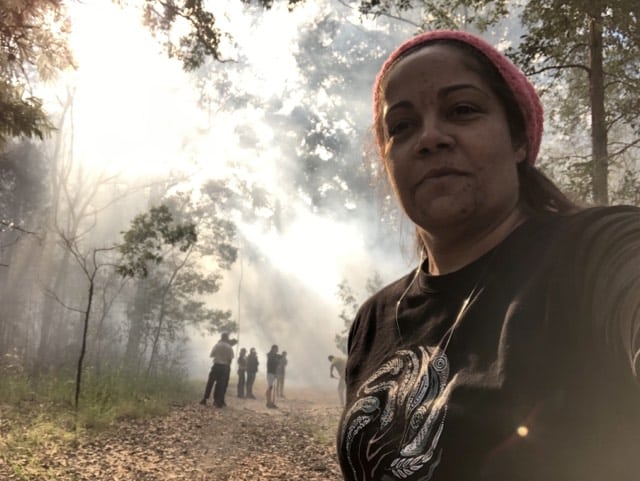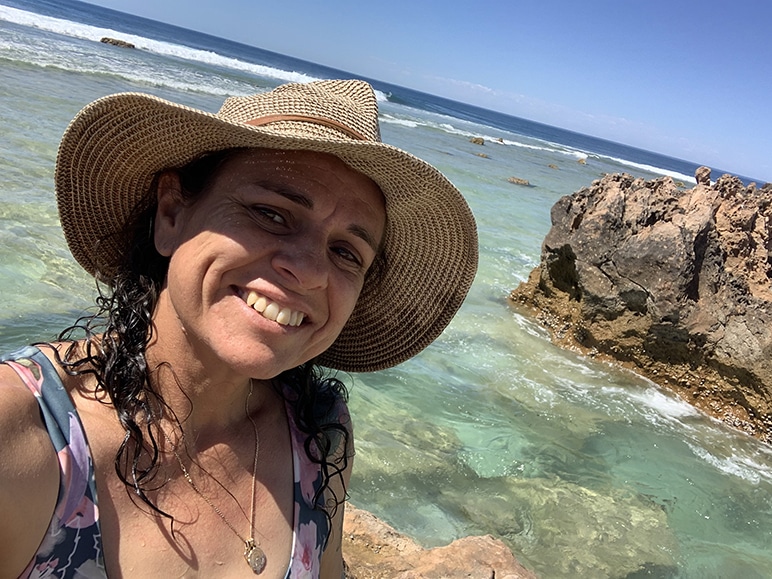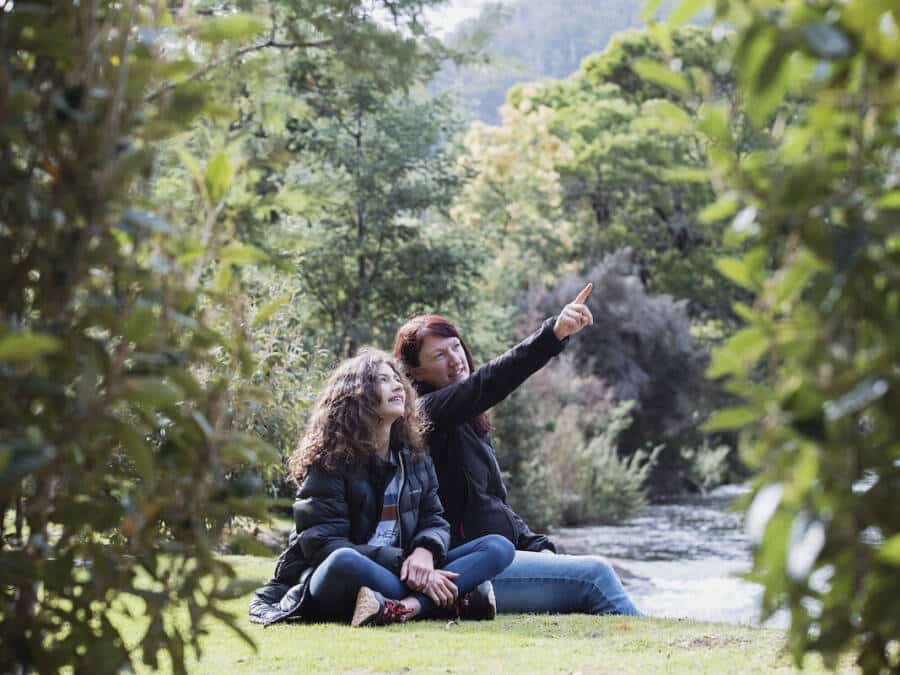The leadership and voices of First Nations women and gender diverse people is crucial to shaping Australia’s response to our climate and environmental crises.
As the first scientists and first environmentalists, First Nations women hold deep knowledge about doing things differently. They have been caring for Country for millennia and their wisdom, expertise and decision making is critical to address the environmental crises we face today.
But despite their long history of leadership, right now First Nations women and gender diverse people in Australia are so often unsupported, unpaid and under-represented in decision-making spaces.
It’s time for that to change.
Here, we spotlight three First Nations women whose stories are shared within the WELA Report: Gender, Climate and Environmental Justice in Australia exploring how we can bring an active, intersectional gender lens to climate and environmental challenges and solutions. The wisdom and dedication of these women is reshaping Australia’s environmental and climate landscape is remarkable. Their stories, filled with resilience and innovation, are a testament to the power of First Nation women’s leadership.
Sarah Eccles: Step Up, Voice Up And Yarn Up
Sarah Eccles, a proud Wadawurrung woman, has dedicated her life to centering First Nations women’s voices in environmental stewardship. Growing up, Sarah always knew that “caring for Country is essential to our wellbeing and our Country’s wellbeing.”
With a background spanning humanities, social sciences, conservation, and land management, accompanied by years of experience foregrounding Indigenous voices, Sarah’s knowledge is both deep and broad.
Now, Sarah focuses on her Wadawurrung community, implementing the Paleert Tjaara Dja (Let’s Make Country Good Together) plan and developing the Gobata Dja (Caring for Country) program. She has served on the Board of Directors of the Wadawurrung Traditional Owners Aboriginal Corporation, pushing for greater female representation in decision-making.
“As a mother raising girls who will continue this work, I feel the importance of nourishing these leadership qualities and that includes my own abilities to be their strong example,” Sarah shares. “We need our women to step up and voice up and yarn up because we’re ultimately the ones that carry a strong caring role.”
Sarah is passionate about the need for greater valuing of First Nations women’s leadership:
“Men are often at the front with all the yarns and perceived decision-making but it’s the women in the background who do alot of the work. When you really hear ideas and ways of doing things that are centred on caring and looking after generations and healing – it’s women coming through.”
Vanessa Cavanagh: Champion of Cultural Burning
Vanessa Cavanagh, a Bundjalung and Wonnarua Aboriginal woman, combines her strong connection to Country with experience in conservation and fire management. Her PhD research delves into the unique role of Aboriginal women in cultural burning.

While there is a long history of Aboriginal people managing Country in Australia, after colonisation this relationship was disrupted as Aboriginal people were displaced from their lands and cultural practices. Vanessa’s research amplifies the reinvigoration of cultural burning practices among Aboriginal women in New South Wales.
Vanessa’s research finds that cultural burning by First Nations women results in both environmental and social outcomes, including strengthening cultural identities and continuing the transmission of cultural practices among communities and generations. There is also good potential for reducing bushfire risk and improving the health of Country.
Ultimately, Vanessa wants her research to ‘positively influence cultural burning policy development and management, to support an increase in Aboriginal women’s participation’.
Bianca McNeair: Bridging Cultures for Conservation
Bianca McNeair, a Malgana woman from Gutharagudu (Shark Bay), embodies the fusion of cultural heritage and environmental advocacy. Her work caring for Country has spanned several different cultural, conservation and political roles, including running for political office in 2022 and working with a Greens Senator.

Despite resistance, Bianca fought for women’s inclusion in Indigenous ranger programs. She created a loggerhead turtle monitoring program for Malgana women, which also serves as a form of cultural education. “We get to take our teenage daughters, when they’re so vulnerable going out into the big world, we get to take them out on Country and teach them cultural practices about becoming a woman as well,” Bianca explains.
Underpinning all of Bianca’s work caring for Country is an understanding that Aboriginal women bring a much-needed perspective to cultural and environmental issues.
“Us women, we’re dealing with the issues on a day-to-day basis for our communities… There’s lots of disputes over native title borders and whatever but the one thing all us women have in common is that our babies are committing suicide… As women we’ll go and say what can we do, what can we contribute.”
First Nations Women and Gender Diverse People are Essential to Australia’s Environmental Future
The leadership of First Nations women and gender diverse people offers invaluable insights and solutions. It’s time to recognise and amplify their voices in every decision-making space.
First Nation women in leadership is not optional; it’s imperative for a sustainable and equitable future. True reconciliation will require us all to listen deeply to the lessons they offer if we are to walk forward together.
Feature image: Sarah Eccles.


